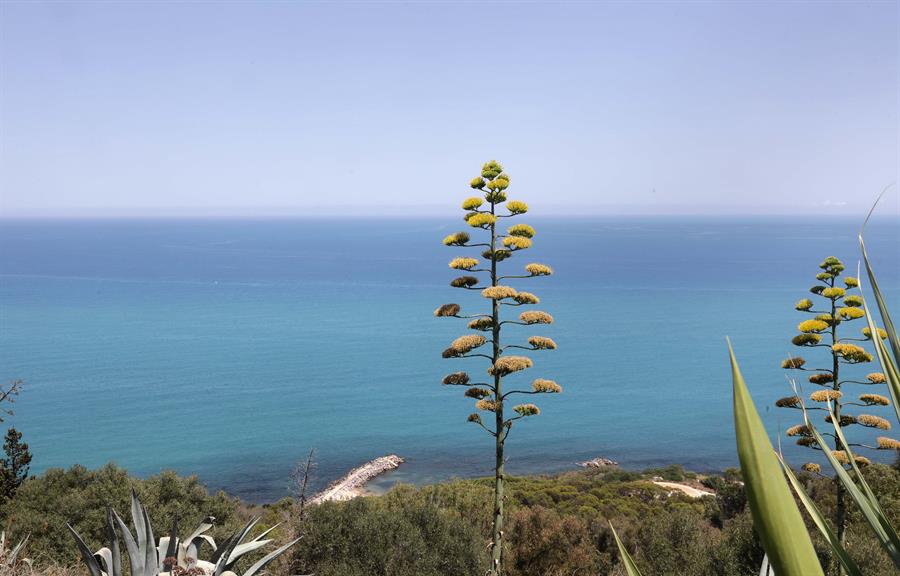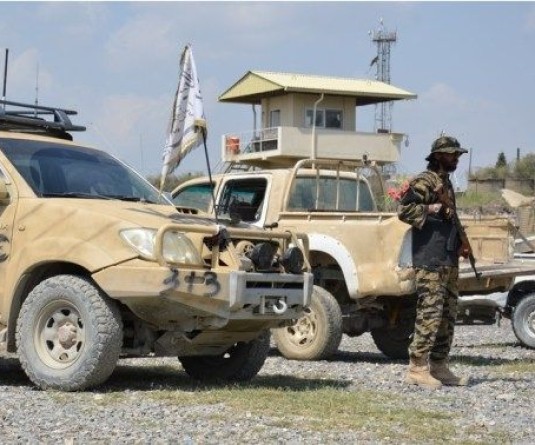Climate crisis puts Mediterranean at risk of tropical diseases

A view of the bay of Tunis from the top of the village of Sidi Bou Said near Tunis, Tunisia, 31 July 2019. EPA-EFE/AMEL PAIN
Tunis, November 30 (efe-epa).- The climate crisis will destroy marine ecosystems, affect our diet and lead to the proliferation of tropical diseases across the Mediterranean's communities, a UN Environment Programs expert told Efe.
Cebrián Menchero, who has been studying the effect of climate change on the Mediterranean coast from his base in Tunisia for more than a decade, urged that despite what many think, the melting of the icecaps is not the most serious problem for the seas.
The expert said that radical changes that have been detected in some ecosystems, in some cases already proven irreversible, are a major cause for concern for the planet's oceans and seas.
QUESTION: The Mediterranean is one of the most diverse seas on the planet, after the tropical ones, how has climate change affected it?
ANSWER: From the work that was done ten years ago we could see that climate change was already here. And this can be felt in the increase of epizootics (non-human diseases), of diseases in certain species that are at risk.
Now we have the case of the pina nobilis which is a large mollusk, a gigantic mussel, the largest mollusk after the triad in the tropics, which is in danger of extinction. This is due to a parasite, but it is these parasites that are appearing, these diseases that appear in these places, that did not exist before in the Mediterranean because the climatic conditions were different.
Q: How were they different?
Our seas are one degree warmer than they were before. This has allowed certain diseases, that did not exist in the Mediterranean before, to spread. We are talking here of all sorts of species, mollusks, fish...they arrive through the Suez canal or the Gibraltar Strait and previously they would have arrived but due to the climate conditions, especially during cold spells and in winter, died and didn't reproduce. Now they survive and reproduce and we are seeing enormous changes to ecosystems.
Q: How does this affect humans?
A: It has an impact on an economic level, but above all, it affects wellbeing.
We also face the problem of different illnesses, which were traditionally associated with warmer waters, tropical regions, which will arrive here, even inland, and will spread through parasites and mosquitoes.
We don't yet fully know the consequences but there are already many scientists working on this.
Q: What diseases are we discussing here?
A: We will die of diseases like dengue, tuberculosis, diseases we thought we had controlled that wouldn't affect our regions, and that were considered tropical, but that we will also have here.
We will be more susceptible to diseases.
Q: Is it too late to save the ecosystems at risk?
A: We know many fishing pools of the world where fishing has disappeared, as happened with anchovies in Peru, or cod in areas close to Canada, which are fishery resources that are no longer available and will not be recovered.
It is important to take action before it is too late. We have a years-long delay now.EFE-EPA





